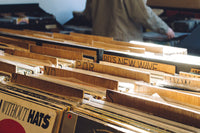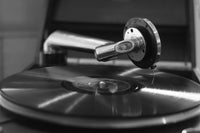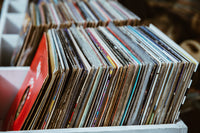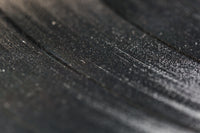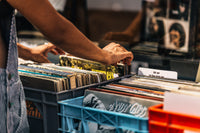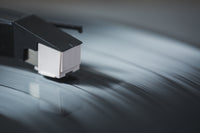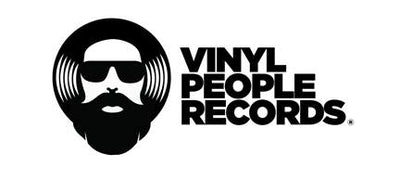Neil Young A Letter Home - Vinyl
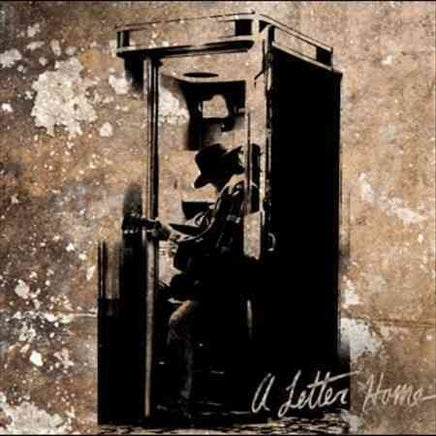
During the 2014 promo campaign for Pono, his high-end digital audio device, Neil Young called his forthcoming album A Letter Home "an art project," which is an appropriate term for this curious collection of covers from his contemporaries. It's not so much that the choice of songs is unusual -- nearly all of them are from the '60s and '70s, years when Young was also active, but a handful ("Crazy," "Since I Met You Baby," "I Wonder If I Care as Much") date from the late '50s or early '60s -- but the recording method. Young headed down to Jack White's Third Man Records in Nashville where Jack installed a refurbished Voice-O-Graph booth, a device designed to allow a user to "Make Your Own Record" by cutting a song or message directly to vinyl. These contraptions were designed in 1947 and were once a common sight in arcades and fairs but they died away in the '70s, turning into an artifact of a weird old Americana beloved by both Young and White. Neil decided to use the Voice-O-Graph to record a full album, an experiment that's strictly about the method of recording, not the music itself. By design, the Voice-O-Graph allows for no overdubs -- it captures everything that happens in the booth and nothing more -- so the performances are intimate and sometimes rushed, qualities that are alternately enhanced and undercut by the thin, crackly recording. This aural affectation can be affecting -- in particular, his readings of Gordon Lightfoot's "Early Morning Rain" and "If You Can Read My Mind" are quite sweet, as is Bob Dylan's "Girl from the North Country," while there's a genuine pang of pathos lying in Bert Jansch's "Needle of Death" -- but the trebly, wavy audio can also seem cacophonous, whether it's capturing Neil alone (Bruce Springsteen's "My Hometown") or in tandem with White (a version of Willie Nelson's "On the Road Again" that always seems just on the verge of falling apart, which could be perceived as a compliment depending on your view). Usually, the flaws of A Letter Home can be pegged on the archaic recording technology -- only a couple of performances feel shambolic -- but Young is also having fun with what the Voice-O-Graph meant, opening the album with a wry, winding spoken letter to his departed mother and then addressing another missive to her later on the record. These words are simultaneously sentimental and impish, a wink to the audience that Young is in on the joke but also doesn't quite consider A Letter Home a joke. Sure, there's artifice and humor here, but there's also heart, and this blend of emotions is what makes A Letter Home one of Neil Young's quintessential, endearingly odd records. ~ Stephen Thomas Erlewine
- Format Detail: LP
- Format: Vinyl
- Genre: Pop
Where Music Lives ON
